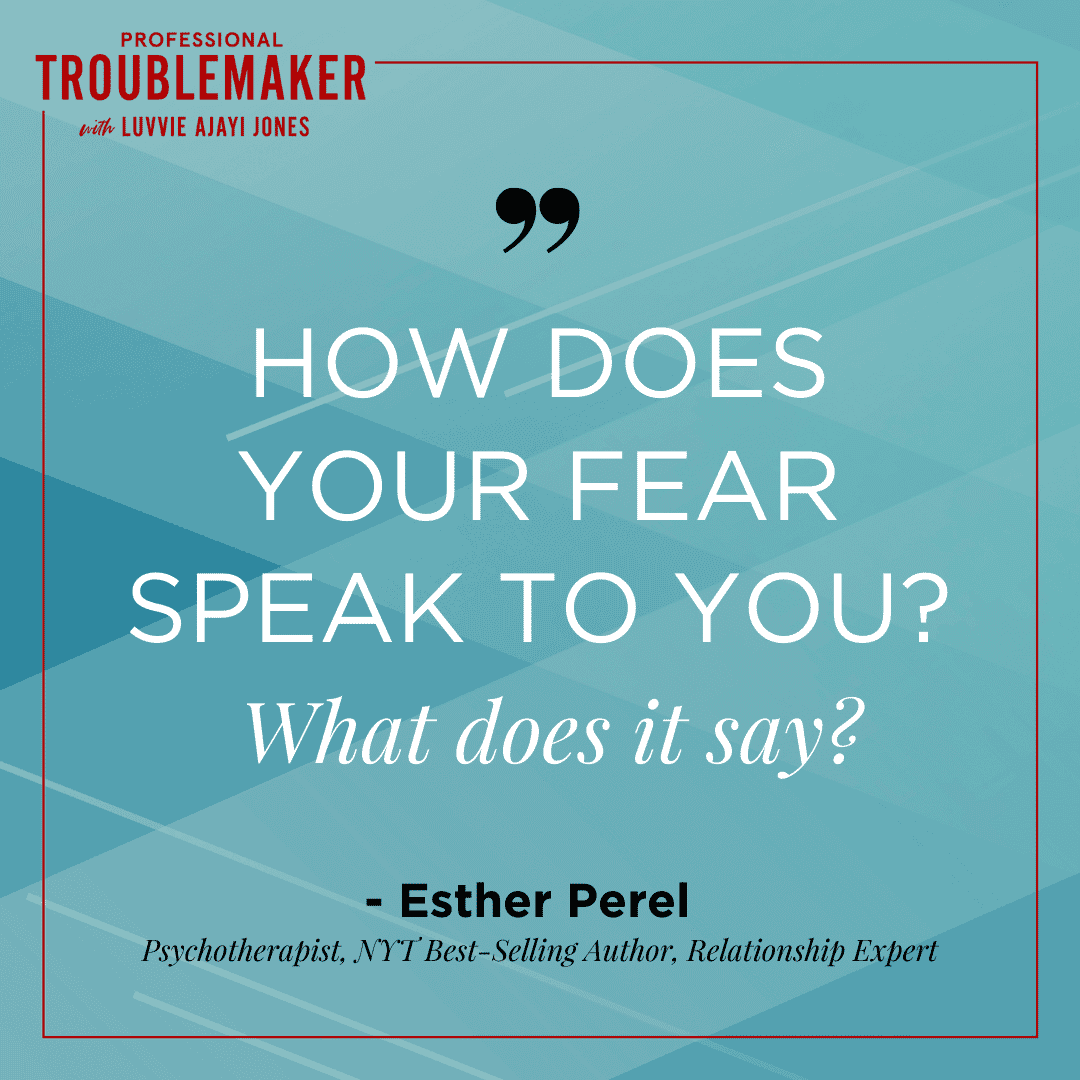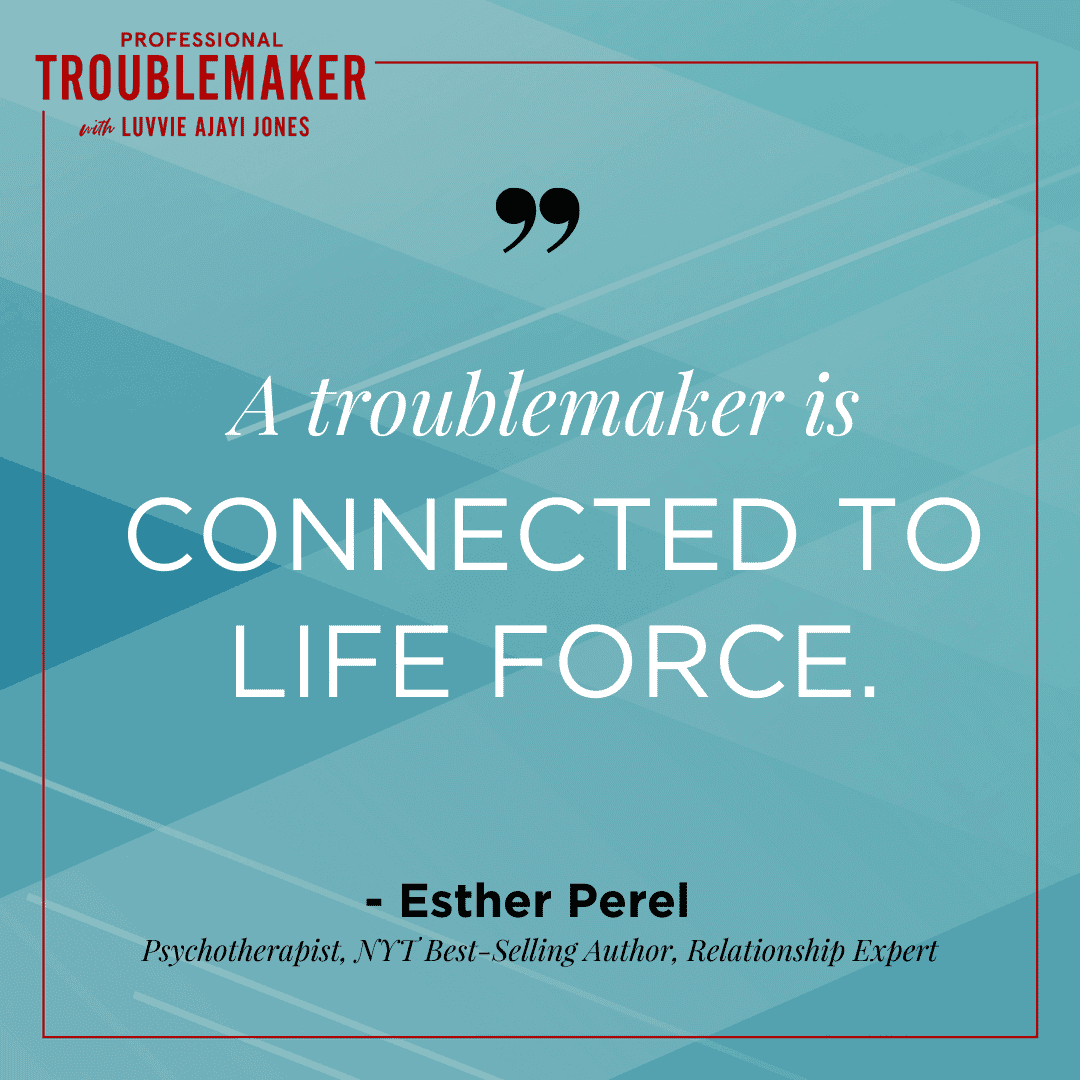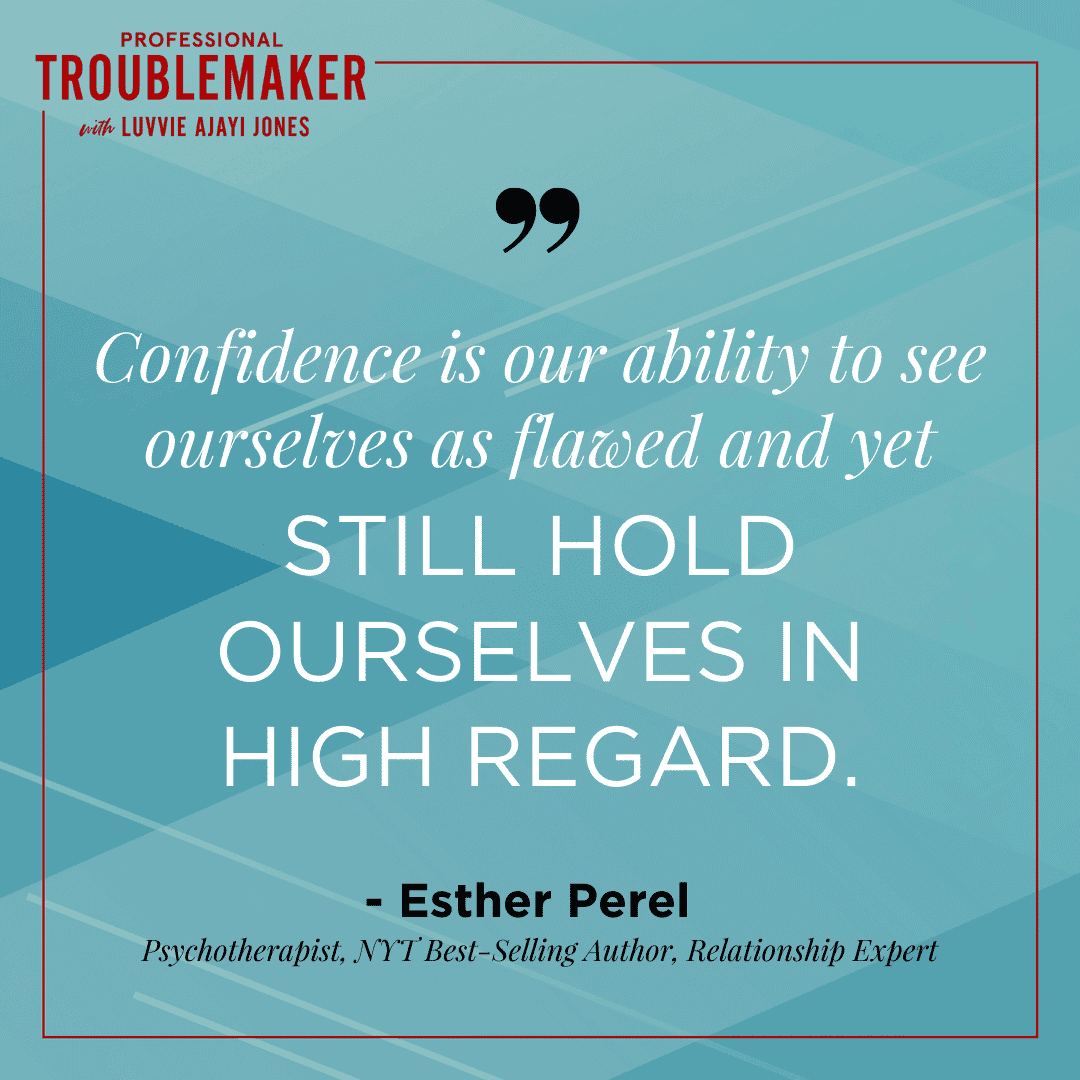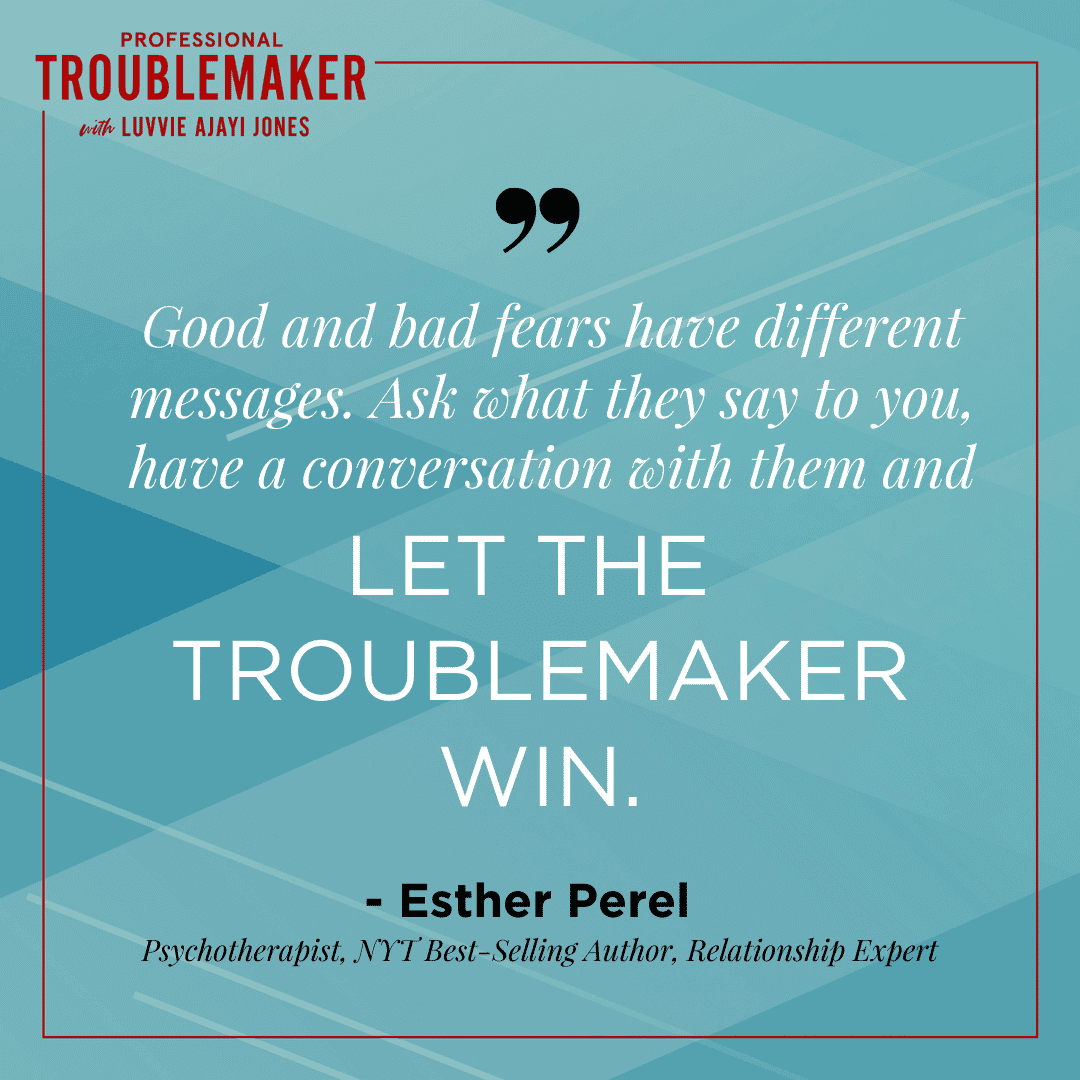Make sure you’re subscribed and that you rate and review! Share on social media using the hashtag #ProfessionalTroublemaker. Also, follow the podcast on Instagram! Email info@aweluv.com with feedback or questions!

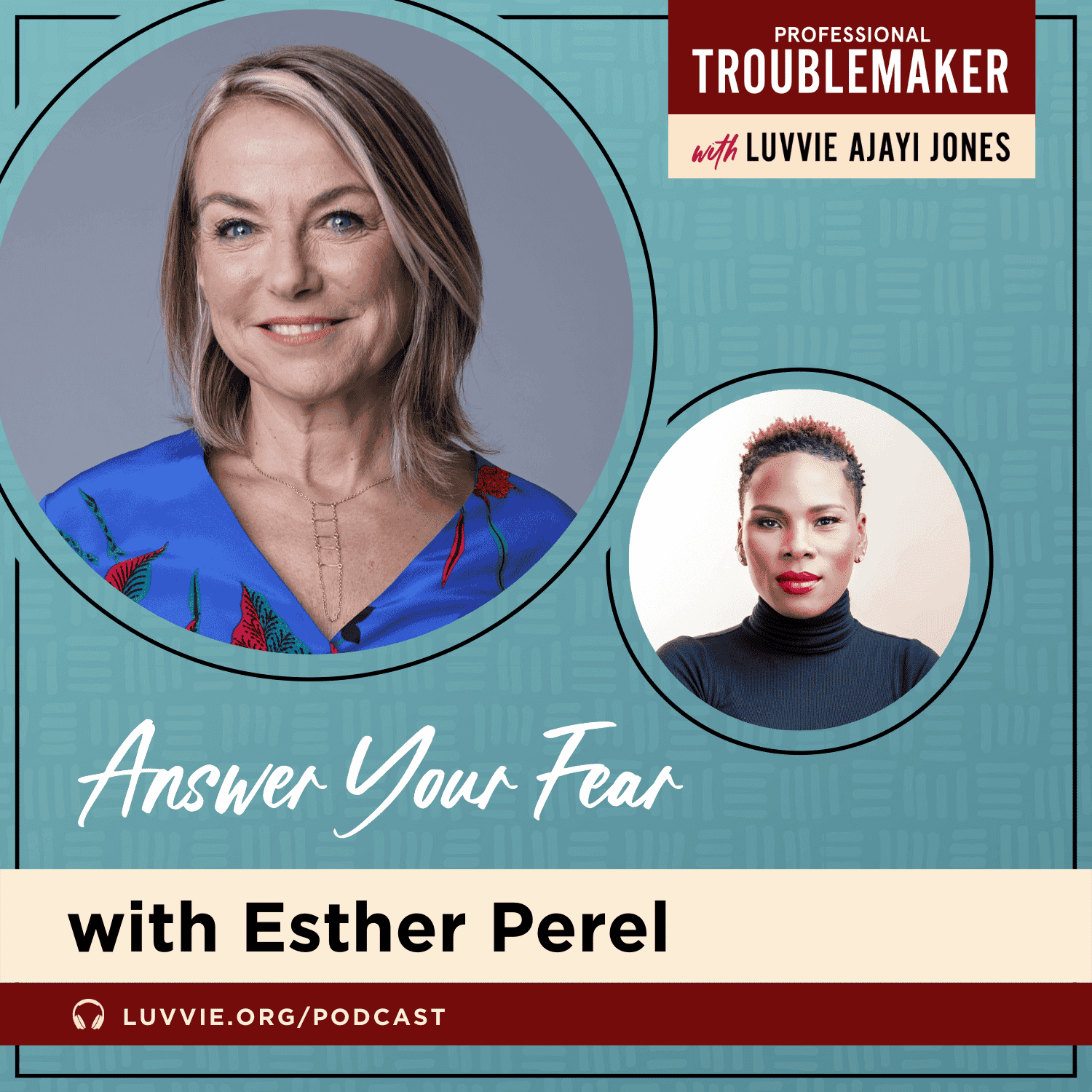
About the Episode
Today on Professional Troublemaker, we’re sharing a conversation from Luvvie’s book tour in March of 2021. All the people Luvvie chose for this tour are those she considers professional troublemakers in their field. They exude excellence in everything they do, and this episode is a perfect example of that.
Luvvie is talking to psychotherapist Esther Perel. Esther is one of today’s most insightful and original voices on modern relationships. She’s a bestselling author, TED speaker and host of the hit podcasts Where Should We Begin? and How’s Work? She also has an amazing game that is also called Where Should We Begin? Esther is fluent in nine languages, and she coaches pairs around the world of all types on relationship dynamics.
View this post on Instagram
In this conversation, Esther and Luvvie talk about how fear shows up and how it speaks to us, how troublemakers answer fear, success and how it can inspire and potentially intimidate us, and how community makes us stronger.

Confidence is our ability to see ourselves as flawed and yet
still hold ourselves in high regard.
About the Guest
Esther Perel

Psychotherapist and New York Times bestselling author Esther Perel is recognized as one of today’s most insightful and original voices on modern relationships. Fluent in nine languages, she helms a therapy practice in New York City and serves as an organizational consultant for Fortune 500 companies around the world. Her celebrated TED Talks have garnered more than 30 million views and her bestselling books Mating in Captivity and The State of Affairs have become global phenomena, translated into nearly 30 languages. Esther is also an executive producer and host of the popular podcasts Where Should We Begin? and How’s Work? Learn more at EstherPerel.com or by following @EstherPerelOfficial on Instagram.
Transcript

Subscribe to Professional Troublemaker



 View the Transcript
View the Transcript